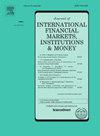恐怖主义,制度环境,企业现金持有量
IF 6.1
2区 经济学
Q1 BUSINESS, FINANCE
Journal of International Financial Markets Institutions & Money
Pub Date : 2025-10-04
DOI:10.1016/j.intfin.2025.102227
引用次数: 0
摘要
利用2002年至2019年来自35个国家的公司样本,我们调查了恐怖主义对企业现金持有量的影响。我们发现恐怖主义与企业现金持有量之间存在显著的正相关关系。对于在制度环境较弱和风险导向文化较少的国家经营的公司来说,这种影响更为明显。进一步的分析表明,增加的信息不透明度、高收益和现金流波动性、较高的债务成本和较低的派息率是恐怖主义影响公司现金持有量的合理渠道。最后,我们发现较高的现金持有量有助于缓解恐怖主义对投资的负面影响。这一发现支持了预防性储蓄理论,强调了企业如何在面对恐怖主义相关风险时保持财务灵活性以增强组织弹性。本文章由计算机程序翻译,如有差异,请以英文原文为准。
Terrorism, institutional environment, and corporate cash holdings
Using a sample of firms from 35 countries from 2002 to 2019, we investigate the effect of terrorism on corporate cash holdings. We find a significant positive relationship between terrorism and corporate cash holdings. This effect is more pronounced for firms operating in countries with weaker institutional environments and less risk-oriented cultures. Further analysis suggests that increased informational opacity, high earnings and cash flow volatility, higher cost of debt, and lower payout ratio are plausible channels through which terrorism influences firms’ cash holdings. Finally, we show that higher cash holdings help mitigate the negative effects of terrorism on investment. This finding supports the precautionary savings theory, highlighting how firms maintain financial flexibility to enhance organizational resilience in the face of terrorism-related risks.
求助全文
通过发布文献求助,成功后即可免费获取论文全文。
去求助
来源期刊
CiteScore
6.60
自引率
10.00%
发文量
142
期刊介绍:
International trade, financing and investments, and the related cash and credit transactions, have grown at an extremely rapid pace in recent years. The international monetary system has continued to evolve to accommodate the need for foreign-currency denominated transactions and in the process has provided opportunities for its ongoing observation and study. The purpose of the Journal of International Financial Markets, Institutions & Money is to publish rigorous, original articles dealing with the international aspects of financial markets, institutions and money. Theoretical/conceptual and empirical papers providing meaningful insights into the subject areas will be considered. The following topic areas, although not exhaustive, are representative of the coverage in this Journal. • International financial markets • International securities markets • Foreign exchange markets • Eurocurrency markets • International syndications • Term structures of Eurocurrency rates • Determination of exchange rates • Information, speculation and parity • Forward rates and swaps • International payment mechanisms • International commercial banking; • International investment banking • Central bank intervention • International monetary systems • Balance of payments.

 求助内容:
求助内容: 应助结果提醒方式:
应助结果提醒方式:


